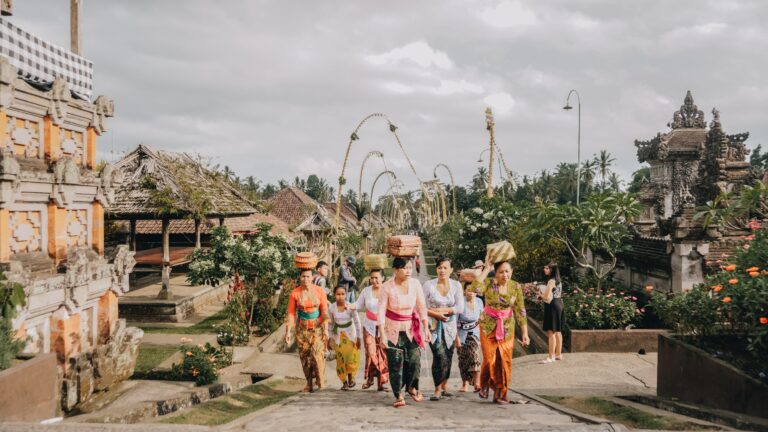Beyond sightseeing and sunbathing, a journey to Bali offers much more. One of the greatest joys of visiting the island lies in immersing oneself in the captivating Balinese culture. A prominent aspect of this unique culture is Balinese Hinduism, which holds a practically omnipresent presence in Bali.
Contrary to the broader Indonesian population, where Islam is the dominant religion, Bali stands out as a Hindu-majority region. The brand of Hinduism practiced on the island diverges from other branches of the religion, encompassing distinctive practices and a rich history.
Balinese Hinduism history
Bali’s history bears a significant imprint of Indian influence, exemplified by the prominence of Balinese Hinduism. Scholars generally trace the arrival of Hinduism in the Indonesian archipelago back to the first century AD. During this time, epic Hindu tales akin to those found in Southeast India began to emerge in Java. Although the exact mechanism of the religion’s spread remains largely unknown, it eventually gained dominance on the island of Java by the fifteenth century AD.
In the fifteenth and sixteenth centuries, Java and other Indonesian islands fell under the control of Muslim invaders from the mainland. To escape religious persecution, many Hindus residing in Java made their way eastward to Bali, which marked the origin of Balinese Hinduism.
Balinese culture came under the dominant influence of Hinduism, and the Dutch administration’s rule over the archipelago played a role in curbing religious violence for many centuries. With Indonesia achieving independence in 1945, the nation’s constitution enshrined the principle of religious freedom.
However, in 1952, the Indonesian Ministry of Religion stipulated that only monotheistic beliefs would be officially recognized as religions. As a result, Balinese Hindus were initially classified as having no religion. Nevertheless, in 1958, the Hindus of Bali actively sought to change this situation and successfully petitioned to have their faith acknowledged as monotheistic, emphasizing their belief in an “undivided one.”
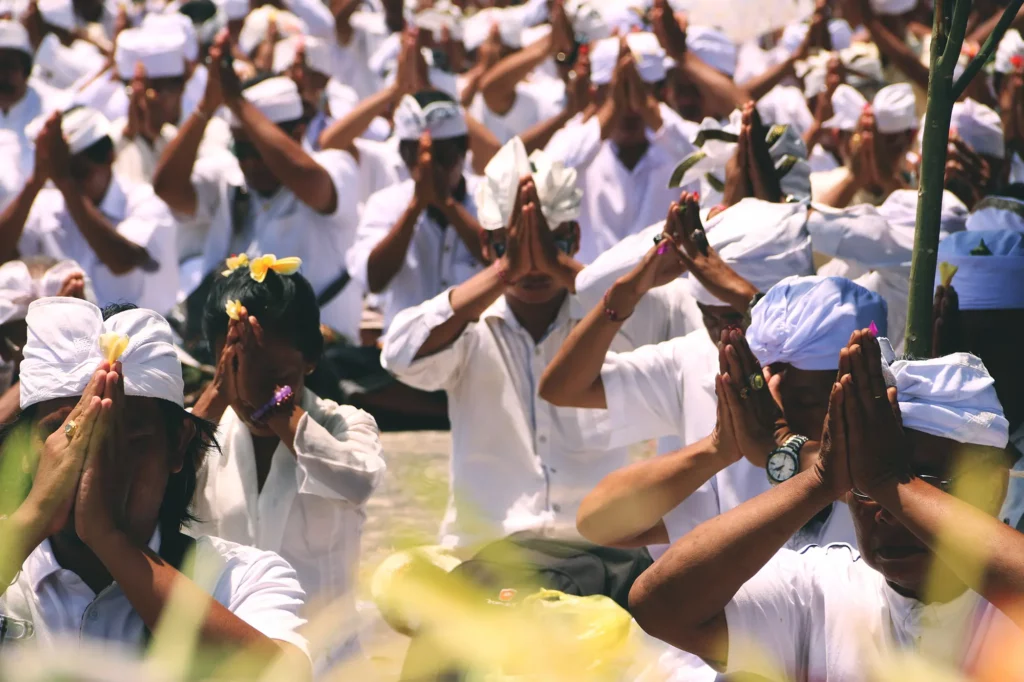
Core beliefs in Balinese Hinduism
Hinduism in Bali centers on several core beliefs, some shared with Hinduism at large and others unique to the island. The Indonesian Ministry of Religion acknowledges the Balinese faith in one supreme being, with all other deities regarded as its facets. Alongside the classical Indian trinity of Brahma, Vishnu, and Shiva, Balinese Hindus venerate various deities that have local origins.
Balinese religion upholds ethical values similar to those in Indian Hinduism, transmitted through family traditions rather than formal religious institutions. According to their beliefs, newborns carry the soul of an ancestor, and the concept of reincarnation holds a significant place in their understanding of life. Furthermore, like in Indian Hinduism, a caste system has long been observed, with distinct expectations for behavior based on social strata (for instance, Brahmins adhere to particularly strict dietary restrictions).
Regarding dietary practices, Balinese Hindus generally abstain from consuming certain animals, such as tigers, dogs, crocodiles, crows, and birds of prey. Instead, they commonly consume seafood, pork, and chicken as part of their culinary preferences.
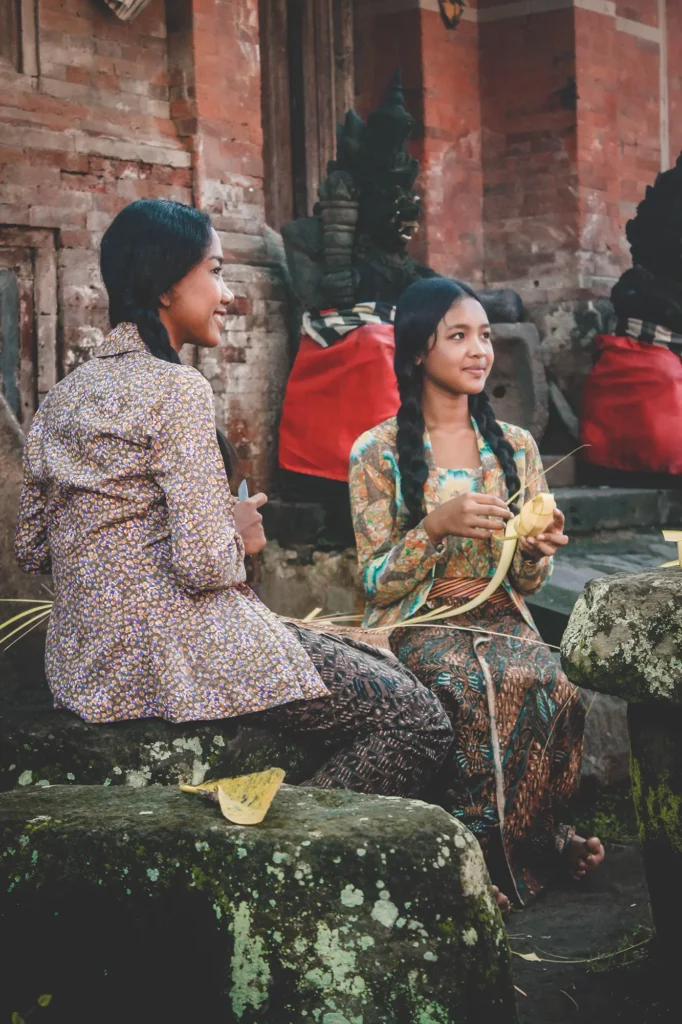
Important ceremonies
Balinese Hinduism encompasses a variety of unique traditions, including ceremonies, processions, and festivals, each playing a significant role in shaping Balinese culture.
One of the most vital festivals in Balinese Hinduism is Galungan, which celebrates the triumph of dharma over adharma, similar in essence to the Indian festival of Diwali. However, the Balinese celebration occurs at a different time from its Indian counterpart, as it follows the Balinese calendar with only 210 days. During Galungan, it is believed that the spirits of deceased ancestors return to visit the living, and on the concluding day called Kuningan, these spirits depart Earth and return to their realm.
Another notable event is Nyepi, which typically falls in March, marking the last day of the Balinese year, and is observed as a day of silence. For twenty-four hours, practitioners of Balinese Hinduism refrain from speaking, and the island essentially comes to a standstill, with even tourists prohibited from engaging in regular vocal activities on the streets. The festival aims to encourage meditation and self-reflection, while various rituals are performed within homes throughout the day.
As Balinese Hindus progress through life, several special ceremonies mark significant milestones, aimed at purifying the soul and appeasing malevolent spirits. In the early days of life, a baby is considered divine for the initial forty-two days and is not allowed to touch impure ground. Upon reaching puberty, young individuals undergo a symbolic ritual where their upper canine teeth are ceremoniously filed until they are of even length.
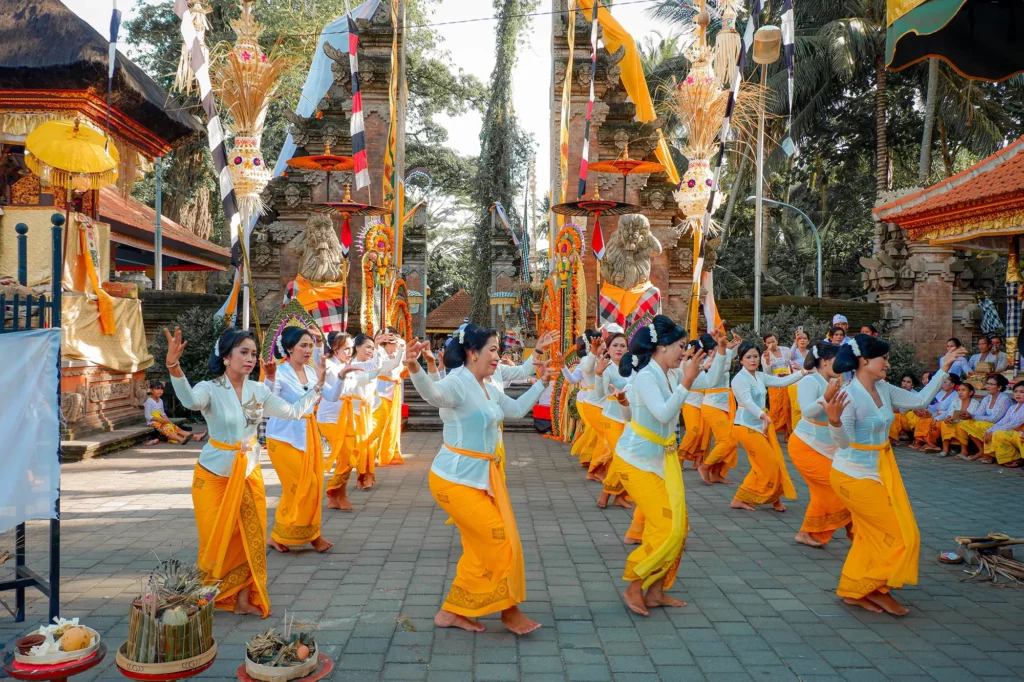
Balinese temples
Balinese Hindu temples, known as Puras, are architectural marvels designed in accordance with religious beliefs. Typically open-air spaces, these temples feature an arrangement of gates, shrines, pavilions, and towers. Divided into three mandala zones, each zone serves a specific purpose in the worship practices of the adherents.
The island of Bali boasts an impressive collection of over 20,000 temples. Among them, the most renowned is the Mother Temple of Besakih, situated on the slopes of Mount Agung, a majestic volcano in Eastern Bali. This temple holds great significance to the Balinese faithful and continues to draw large numbers of local devotees, while also becoming a popular destination for foreign tourists in modern times.
Another remarkable temple is Taman Ayun, celebrated for its exquisite beauty. Although visitors are not allowed to enter the temple itself, the surrounding gardens offer a captivating view of the structures from the outside.
Astonishingly positioned alongside a picturesque lake, the Ulun Danu temple commands attention with its centuries-old architecture and a setting that gracefully extends into the water. Its unique charm and historical heritage make it a truly magnificent and unforgettable place.
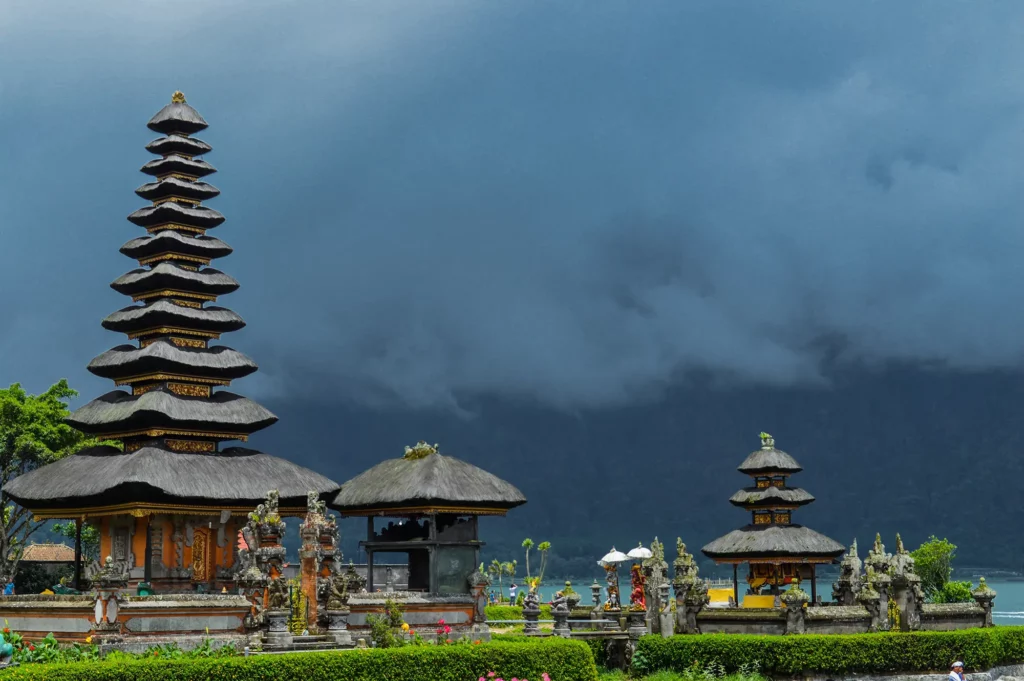
Intrigued by the allure of Bali’s rich culture and captivating Balinese Hindu traditions? Embark on an extraordinary journey to this enchanting island, where every step unravels an extraordinary tapestry of history and spirituality. Experience the enchanting culture of Bali and its captivating Balinese Hindu temples. Contact us to organize your trip and discover Bali with our official guides. Your extraordinary Balinese adventure awaits!


